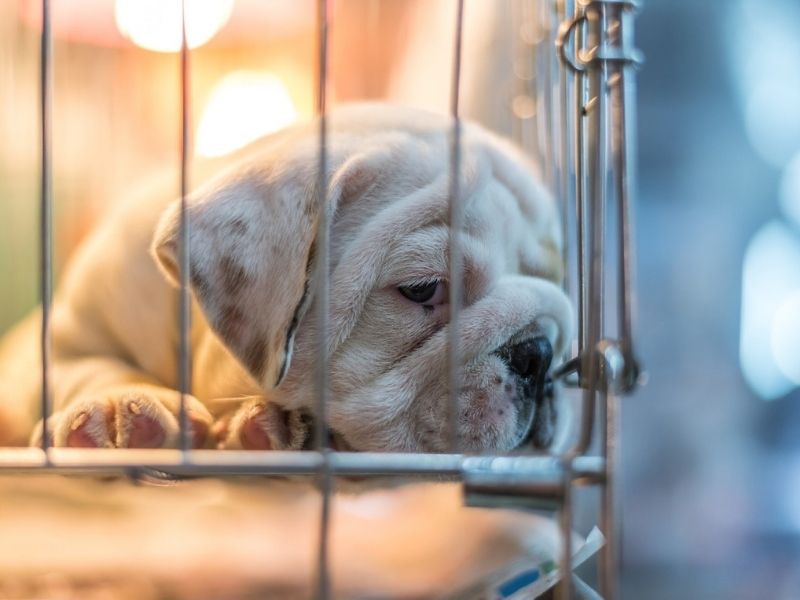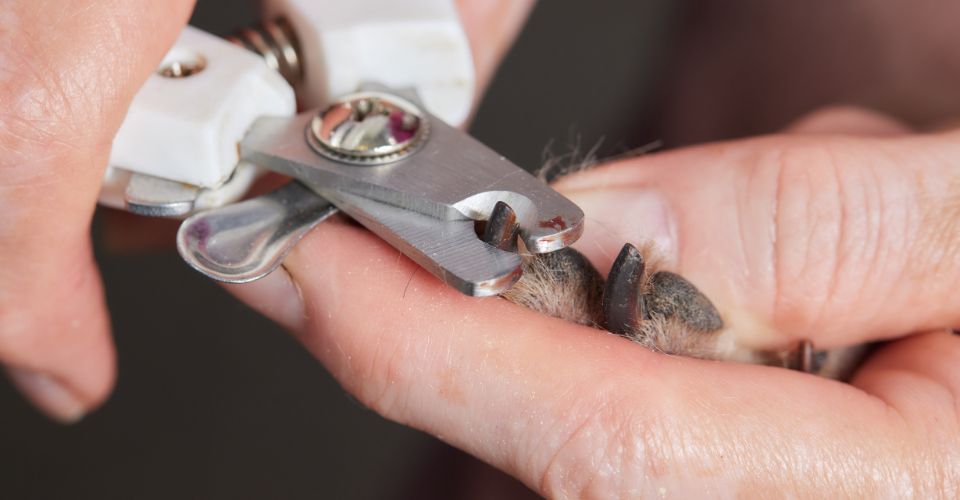Picture a cute puppy being incarcerated in a small cage, where every aspect of his life is being controlled. He has no freedom—he can’t move around, decide what to eat, when to eat, and whom to partner up with. Imagine him being forced to mate solely for the purpose of procreation. He is a prisoner living in harsh conditions, although for no crime committed—except the crime of being cute if that is a crime. This is the life of a puppy in a puppy mill. It is incarceration, deprivation, and desolation, to say the least.
The cute puppies and kittens on display in the pet store windows are hard to resist. Aren’t they? But do you ever wonder where these puppies come from? Who is providing the continuous supply of cute puppies and kittens to these pet stores?
While some of the puppies might come from authorized dog breeders, many you see in pet stores come from puppy mills. “It is estimated that there are at least 10,000 puppy mills in the United States, fewer than 3,000 of which are regulated by the U.S. Department of Agriculture,” according to the Humane Society of the United States. These puppy farms are keeping around 500,00 dogs merely for the purpose of breeding in these mills and as many as 2.6 million puppies that are sold annually in pet stores come from these puppy mills, per the same source.
So what is a puppy mill? Are puppy mills actually bad? Are they illegal? Are dog breeders the same as puppy mills? Would you be rescuing the miserable puppy mill puppies by purchasing them? What can you do about puppy mills?
Let’s find some answers to the above questions.
What is a Puppy Mill?
Also known as puppy farms, puppy mills are commercial dog breeding facilities where puppies are produced on a larger scale—usually in poor conditions. These puppy mills are more concerned with their profit margins than how puppies and dogs are treated. In these facilities, dogs are packed into small spaces, oftentimes, into stacked wired cages. They are denied access to healthy food, water, and basic veterinary care.
Breeding dogs are kept solely to procreate and are culled when they are no longer able to reproduce. Similarly, puppy mill puppies are crammed in squalid conditions, with no room to play, exercise, or socialize with humans. Young pups are forcibly separated from their mothers and sold to pet stores or online. Having lived in poor puppy mill conditions, these puppies often develop behavioral or medical health issues. This is the reason that many of the puppy mill puppies end up being abandoned or euthanized.
Puppy Mill vs. Breeder
Distinguishing puppy mills from breeders is not much difficult. With the debunking of the horrible conditions of dogs and puppies in puppy mills, the public has come to take note of how they work. But to maintain their goodwill among the public, many puppy mills are portraying themselves as responsible breeders. However, if one peeps under the hood, the difference would magnify.
Where breeders give reasonable attention to the well-being of the dogs and strive to improve the quality of their breed, puppy mills are focused on amassing profits with little to no regard for the breed standard as well as their well-being.
Dog breeders regularly screen their dogs to rule out any possibility of specific health problems. On the other hand, puppy farms do not often concern themselves with such care—unless, of course, their profits are at stake. Breeders are associated with breed clubs, and dogs that they use for breeding are raised as pet dogs with families. Conversely, puppy farm runners are working on a large scale and their dogs and puppies have no interaction with humans. In a nutshell, breeders are responsible, treat puppies humanely, and cater to their needs. Puppy mills, on the other hand, are usually devoid of such faculties.

Are Puppy Mills Illegal?
After knowing the harrowing conditions in puppy farms, you must be concerned. You might ask, are puppy mills illegal? It must be, you answer. After all, it is hard to believe that the Federal or State Governments would allow them to operate legally. But surprisingly, in most states, puppy mills are still not illegal. These licensed puppy breeding kennels can keep hundreds of them in cages for an extended period of time, provided that they provide them healthy food, water, and basic veterinary care.
These legal, federally licensed breeding kennels have to provide comfortable living conditions to puppies as well as breeding dogs. However, in reality, even in federally licensed facilities, these standards are not maintained. The Book of Compassion Reverence for All Life cites that more than 25 percent of the 3,500 federally licensed are keeping their puppy farm puppies in substandard conditions. To begin with, these licensed puppy farms are not frequently visited and inspected by authorities. Even when violations surface, operators are rarely fined let alone shutting the facilities.
What’s Keeping Puppy Mills in Business?
The lucrativeness of operating puppy mills is keeping them in business. But at times, we are to blame ourselves too. People like us, who love to keep dogs, make it possible for them to produce more. Simply, the puppy mills are running and churning out a huge number of puppies to meet the growing demand of certain dog breeds like Golden Retriever, Poodle, and Goldendoodle.
Prospective buyers are lured by the cute faces and watery eyes of little pups on display in window stores. Most of the time, we do not care to locate where this cute puppy came from. We just pay the hefty amount and bring the little canine fella home. At times, puppy mills offer lower prices to be competitive in the market. Uninformed dog buyers jump to seize the opportunity of purchasing a dog breed that is otherwise expensive in the market. Knowingly or unknowingly, numerous people are purchasing puppy mill puppies.
What Can You Do?
To begin with, never buy a puppy from a puppy mill or a pet store that cannot furnish the origins of the puppies they sell. You might be thinking that by purchasing a puppy mill puppy, you would be saving that little canine fella from a miserable life. We get it. Almost everybody would think the same until they realize that by doing so, they are supporting the puppy mills to be in business. When you buy a puppy, they produce more puppies to maintain the continuous flow of supply. You must keep in mind that for puppy mill operators, puppies are mere cash crop commodities.
If you are going to buy a puppy from a store, you should ask for references and follow up on them. True, it will take some time but you will be contributing to putting an end to the vicious puppy mill business. You should make the purchase only after ensuring that the pup came from a responsible breeder and is ethically raised.
If you have spotted a puppy farm that is keeping dogs in abominable conditions, report it to the relevant authorities in the soonest possible time. You should keep a follow-up on your report to make sure that authorities are investigating the matter.
Are puppy mills illegal? No—not till now. But your support matters. You can begin educating people about the cruelty of puppy mills. For starters, The Humane Societies of the United States is a good resource on how you can help stop puppy mills. If you would like to know more about dog care and grooming, visit our Dog Care section. You can also subscribe to our newsletter to get updates, tips, and tricks about everything related to dogs.





